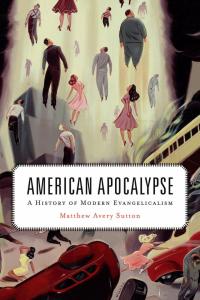A friend asked me for some references on how Evangelicals think about scripture, so I naturally turned it into a blogpost. Let me introduce this with a few basic points about definitions and history.
First, “evangelical” is a very fuzzy term. It’s not a church or denomination, and scholars argue over its ever-shifting definition and usage. One general definition incorporates four characteristics: emphasis on being born again/spiritual conversion; the centrality of Jesus’s divinity, birth, and resurrection; the centrality of the Bible and its authority; that conversion entails missionary work/preaching/spreading the gospel. But as it turns out, not everyone who identifies as “evangelical” fits these. One recent article (which I can’t find at the moment) found that many of those who supported Trump and identified as Evangelical in polls did not hold to those views; “evangelical” was being claimed as a kind of generic non-Catholic Christian term. So, the definition is fluid and tricky.
Second, “evangelicals” grew out of the Fundamentalist movement of the early 20th century, in the Fundamentalism/Modernist dispute; modernists like Harry Emerson Fosdick argued that it did not matter whether Jesus was divine, resurrected, born of a virgin, miracles actually happened, etc. Fundamentalists argued that those things constituted the heart of Christianity, they were the fundamentals. (I think the LDS Church fits pretty squarely on the side of the Fundamentalists here, with the arguable exception being inerrancy. Then again, we have many inerrantist tendencies, and in a letter to Henry Eyring, Joseph Fielding Smith expressed the view that “men were infallible… when they, as prophets, reveal to us the word of the Lord.” I think there are good historical and scriptural reasons to think prophets and revelation are not presenting perfect and accurate divine facts, exhibits A and B.)
Note what was not fundamental. William Jennings Bryan, in the Scopes Trial, had little problem with an old earth and the evolution of plants and animals (except humans.) In fact, before the term “fundamentalism” was coined in 1920, it was sometimes called “Bryanism.” So “fundamentalist” today does not mean the same thing as it did 100 years ago.
Now, I’ve talked about a few of these things before.
- Mormons, Evangelicals, Tradition, and Sunday School
- Podcast about why we and Protestants view and use scripture differently. (Basically, we have very different authority structures; we are not sola scriptura, but have an open canon and prophets. This simultaneously helps and complicates things considerably.)
Suggested and accessible books
-

Sutton, American Apocalypse
Sutton, American Apocalypse: A History of Modern Evangelicalism
-
I love the cover on this history. Sutton’s a great writer, and I also highly recommend his lively history of Aimee Semple McPherson and the Resurrection of Christian America. “Sister” Aimee was a fundamentalist and the first pastor of a megachurch, the Angeles Temple in LA in the early 1900s. It’s a real person’s story during the age of the Fundamentalist/Modernist controversy.
-
-
- Like many listed here Noll is both a top scholar of Evangelical Christianity and an Evangelical himself. He looks at the tensions between science, culture, “biblical criticism” and Evangelical faith. Many parallels here to LDS history and thought.
-

Molly Worthen, UNC-Chapel Hill
Molly Worthen, Apostles of Reason: the Crisis of Authority in American Evangelicalism
- A very good read. Worthen headlined the 2018 UVU conference Mormonism and the Challenges of Science, Revelation, & Faith. You can watch the presentations, including mine, by clicking on the author’s name.
- Worthen is also the professor in the lecture series History of the Christianity: From the Reformation to the Modern Megachurchwhich is worth listening to.
-
Randall Stephens and Karl Giberson, The Anointed: Evangelical Truth in a Secular Age
- Evangelicals have developed their own parallel in-house “experts” in history. Sometimes they actually do have accredited expertise, and sometimes they have become “cultural” experts only, lacking all qualifications, e.g. Ken Ham.
-
Larsen, Summer for the Gods: The Scopes Trial and America’s Continuing Debate over Science and Religion
-
Larsen has a PhD in history of science and a JD from Harvard, and won a Pulitzer for this book. Your perception of Bryan, the trial, and others is probably skewed.
-
- Enns, Inspiration and Incarnation: Evangelicals and the Problem of the Old Testament
- A perennial recommendation of mine. Enns, with his Harvard PhD in Hebrew Bible, examines three assumptions evangelicals (and Mormons!) tend to make about the Old Testament, and why those assumptions cause problems.
-
-
An older, denser, classic treatment cited by everyone. Sutton (above) is newer and more accessible.
-
-
Bradley Longfield, The Presbyterian Controversy: Fundamentalists, Modernists, and Moderates
- A classic academic treatment of the Fundamentalist/Modernist controversy.
Happy reading.
As always, you can help me pay my tuition here, or you can support my work through making your regular Amazon purchases through the Amazon links I post. You can also get updates by email whenever a post goes up (subscription box below). You can also follow Benjamin the Scribe on Facebook. If you friend me on Facebook, please drop me a note telling me you’re a reader. I tend not to accept friend requests from people I’m not acquainted with.

Recent Comments